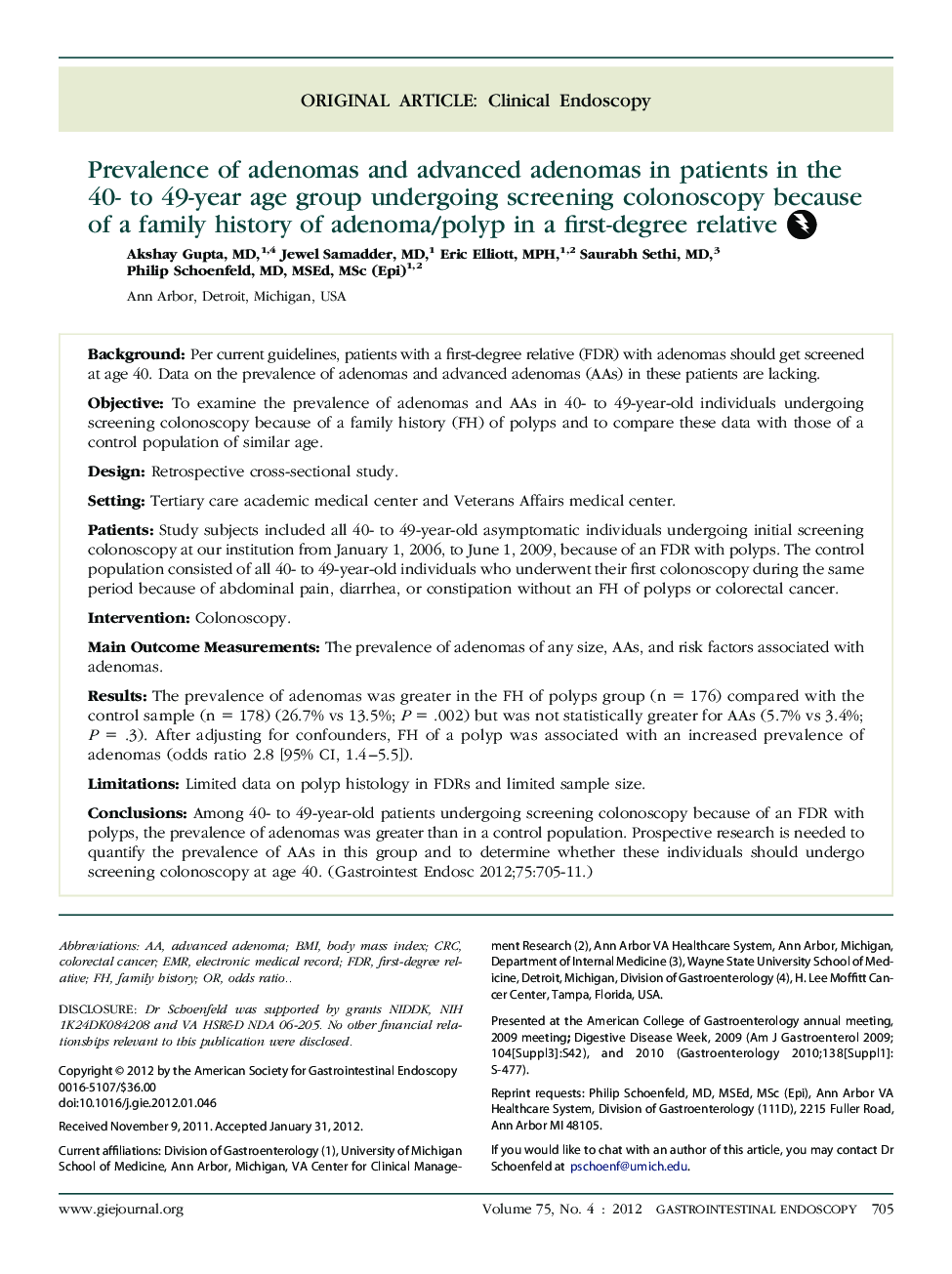| Article ID | Journal | Published Year | Pages | File Type |
|---|---|---|---|---|
| 3305106 | Gastrointestinal Endoscopy | 2012 | 7 Pages |
BackgroundPer current guidelines, patients with a first-degree relative (FDR) with adenomas should get screened at age 40. Data on the prevalence of adenomas and advanced adenomas (AAs) in these patients are lacking.ObjectiveTo examine the prevalence of adenomas and AAs in 40- to 49-year-old individuals undergoing screening colonoscopy because of a family history (FH) of polyps and to compare these data with those of a control population of similar age.DesignRetrospective cross-sectional study.SettingTertiary care academic medical center and Veterans Affairs medical center.PatientsStudy subjects included all 40- to 49-year-old asymptomatic individuals undergoing initial screening colonoscopy at our institution from January 1, 2006, to June 1, 2009, because of an FDR with polyps. The control population consisted of all 40- to 49-year-old individuals who underwent their first colonoscopy during the same period because of abdominal pain, diarrhea, or constipation without an FH of polyps or colorectal cancer.InterventionColonoscopy.Main Outcome MeasurementsThe prevalence of adenomas of any size, AAs, and risk factors associated with adenomas.ResultsThe prevalence of adenomas was greater in the FH of polyps group (n = 176) compared with the control sample (n = 178) (26.7% vs 13.5%; P = .002) but was not statistically greater for AAs (5.7% vs 3.4%; P = .3). After adjusting for confounders, FH of a polyp was associated with an increased prevalence of adenomas (odds ratio 2.8 [95% CI, 1.4–5.5]).LimitationsLimited data on polyp histology in FDRs and limited sample size.ConclusionsAmong 40- to 49-year-old patients undergoing screening colonoscopy because of an FDR with polyps, the prevalence of adenomas was greater than in a control population. Prospective research is needed to quantify the prevalence of AAs in this group and to determine whether these individuals should undergo screening colonoscopy at age 40.
